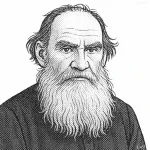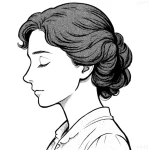“Personal columnists are jackals and no jackal has been known to live on grass once he had learned about meat – no matter who killed the meat for him.”

- July 21, 1899 – July 2, 1961
- American
- Novelist, poet, journalist
table of contents
Quote
“Personal columnists are jackals and no jackal has been known to live on grass once he had learned about meat – no matter who killed the meat for him.”
Explanation
In this quote, Hemingway sharply criticizes personal columnists—those who write about the lives of others, often in a gossipy or sensationalistic way. He compares them to jackals, scavengers that feed on the leftovers of others rather than securing their own prey. By describing columnists as jackals, Hemingway suggests that their work is parasitic, feeding off the private lives of others to make a living. The second part of the quote, “no jackal has been known to live on grass once he had learned about meat”, indicates that once someone has tasted something more substantial or lucrative (like “meat”), they will no longer be content with the simplicity or humility of basic, mundane writing (like “grass”). In other words, once columnists experience the power or profit in writing about more salacious or juicy details of people’s lives, they are unlikely to go back to writing innocuous or non-invasive pieces.
Hemingway’s disdain for personal columnists aligns with his broader view of writing as something that should be authentic, meaningful, and respectful—not exploitative. He believed in the power of writing to delve into important or universal truths, rather than focus on trivialities or sensationalism that might provide temporary entertainment but lacks lasting value. His own writing, often focused on the human condition, war, and struggles, stands in stark contrast to the kinds of stories that columnists—whom he viewed as “jackals”—tended to churn out. This quote reflects Hemingway’s deep belief in the integrity of writing, where the focus should be on substance rather than exploiting others for cheap thrills or easy profits.
In the modern context, this quote can apply to the celebrity gossip culture that dominates much of the media today. The rise of social media, clickbait journalism, and paparazzi culture has led to an increase in writing that pries into the personal lives of public figures. Hemingway’s perspective on personal columnists can be extended to critique how the media often feeds on scandal and invasion of privacy to maintain popularity and sell stories, disregarding the ethics and dignity of those involved. The quote serves as a reminder that writing, and journalism in particular, should ideally seek to enlighten and reflect on the important issues rather than merely capitalize on others’ misfortunes or private moments.
Would you like to share your impressions or related stories about this quote in the comments section?




